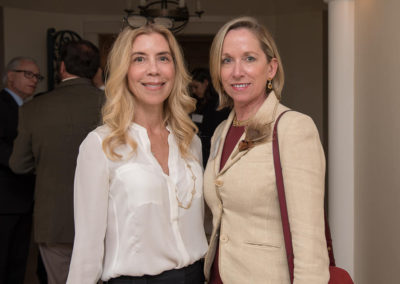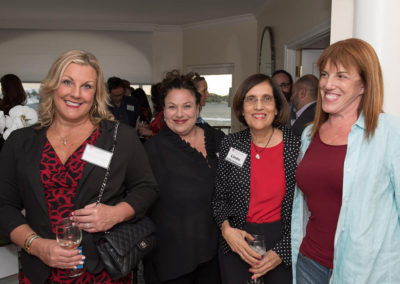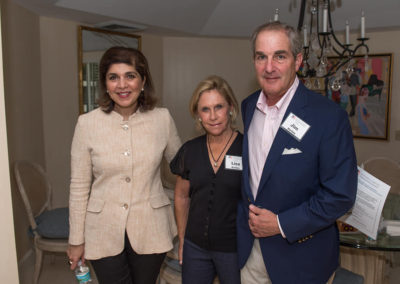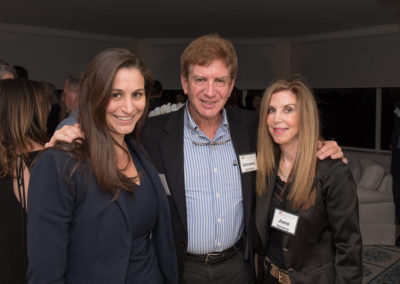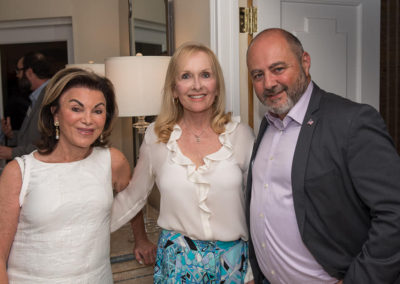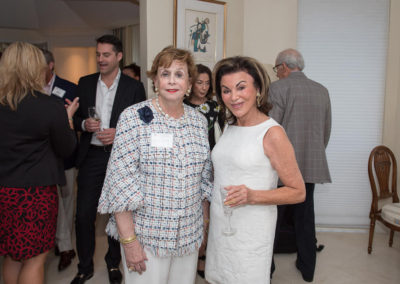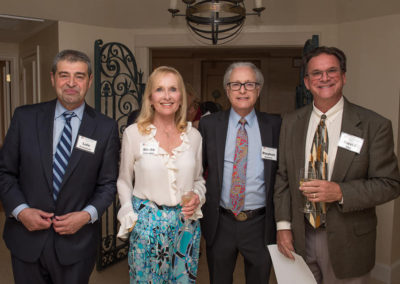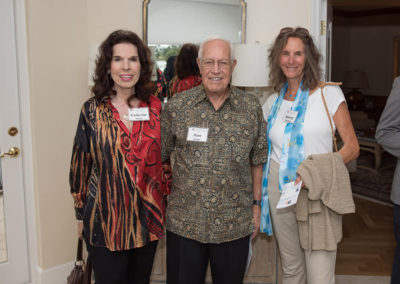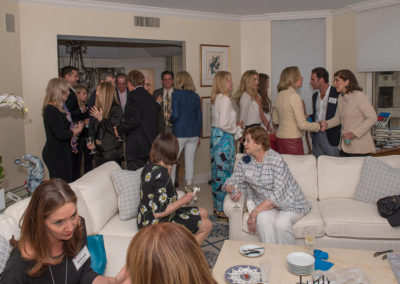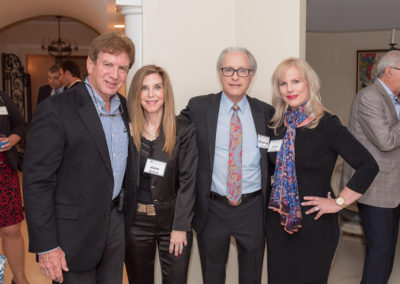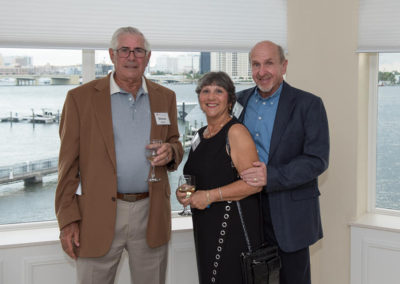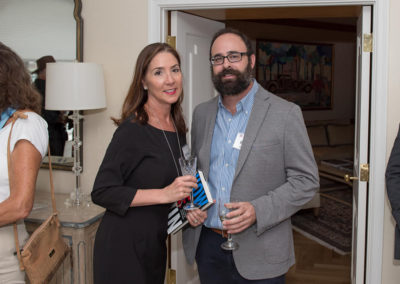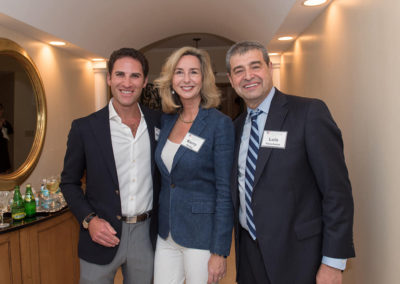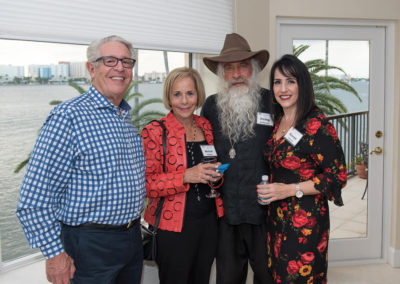Palm Beach Center for Democracy and Policy Research held its inaugural event
The Palm Beach Center for Democracy and Policy Research hosted its inaugural event on April 1st, which was hosted at the home of Sheila Palandjian in Palm Beach and was attended by about 50 guests.
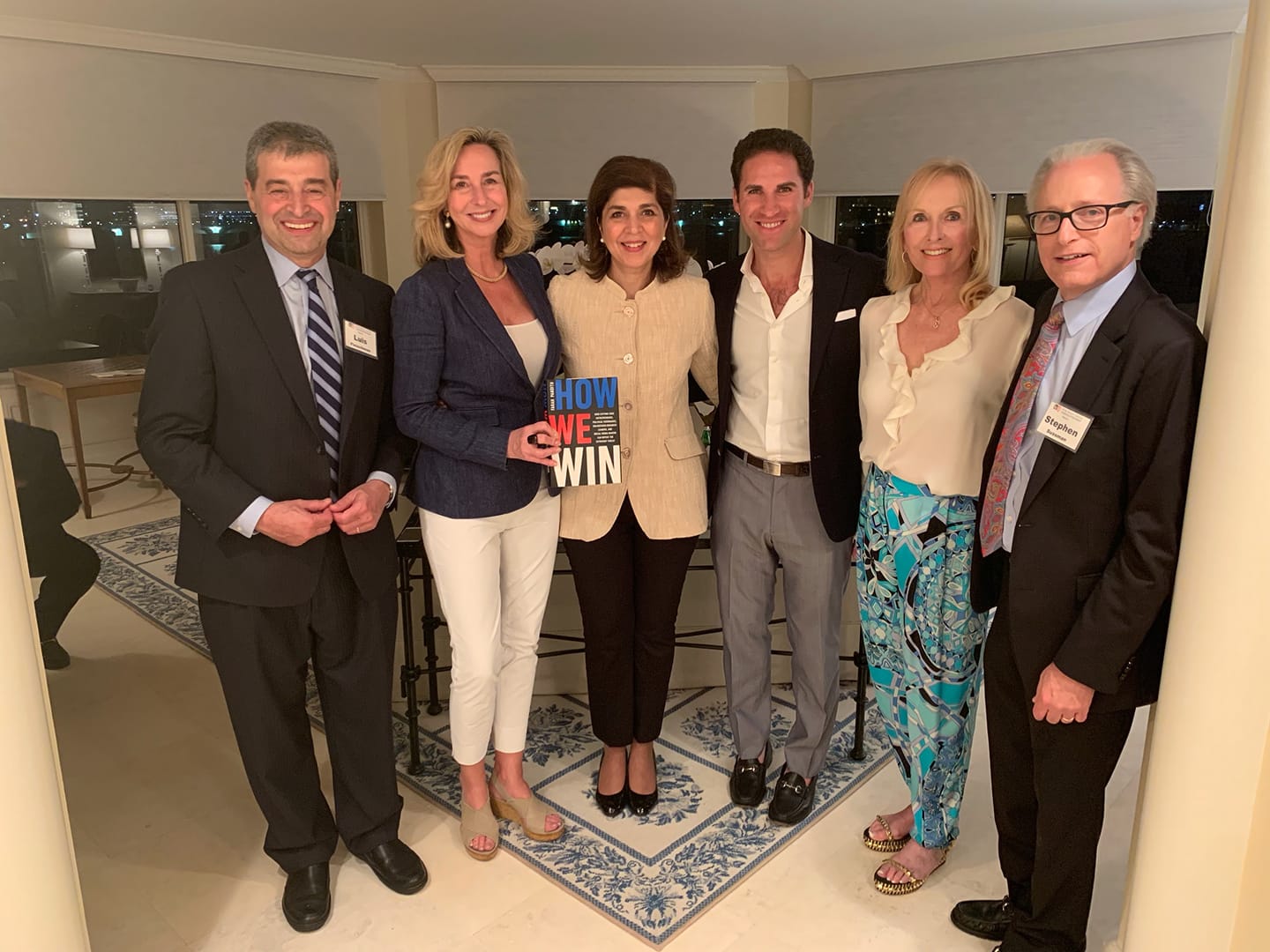
From left to right Dr. Luis Fleischman, co-founder Palm Beach Center for Democracy and Policy Research; Dr. Kerry Healey, Former Lt. Governor of Massachusetts Advisor to the Palm Beach Center for Democracy and Policy Research; Farah Pandith, keynote speaker; Sheila Palandjian host of the event; Dr. Stephen Sussman, co-founder Palm Beach Center for Democracy and Policy Research.
The event’s keynote speaker was Farah Pandith, a former diplomat and foreign policy strategist who served in the administrations of presidents George W. Bush and Barack Obama. Under President Obama, she served as Special Representative to Muslim Communities, and under President Bush, she was the director for Middle East Regional Initiatives at the National Security Council.
Her experiences inspired her to write her recently published book “How We Win: How Cutting-Edge Entrepreneurs, Political Visionaries, Enlightened Business Leaders, and Social Media Mavens Can Defeat Extremist Threat” (Harper Collins, 2019).
The attendees at the event were also addressed by former Lt. Governor of Massachusetts and president of Babson College, Dr. Kerry Healey.
Dr. Healey, who is also a Senior Advisor and Senior Fellow at the Palm Beach Center for Democracy and Policy Research, praised the Center by stressing the need for bipartisan dialogue and exchange of ideas. In light of increasing polarization, bipartisan dialogue is more important than ever before, said Dr. Healey. Healey also emphasized the increasing number of forums and organizations that are deeply concerned about democracy and democratic practices, and like the Center, are attracting liberals, conservatives, Democrats and Republicans.
Dr. Luis Fleischman, Co-founder of the Center, pointed out that the idea behind the Center was to create a forum where different ideas, policies, and solutions could be discussed in a civilized and rational manner. Invoking 9th Century British philosopher John Stuart Mill, Fleischman stated that the way to seek the truth is through the exchange of ideas. “An idea— even if wrong—may still be conducive to the truth,” said Dr. Fleischman, “because opinions, right or wrong, lead to arguments and counter-arguments, which ultimately lead to a greater understanding.”
Fleischman stressed the fact that Palm Beach County, and South Florida in general, have tremendous human and intellectual potential, as many accomplished people who have held positions in government, business and academia, choose to retire and live in the area. Likewise, he added, many professors teach at local universities, and are eager to share their ideas with the larger public about local, national and international challenges.
Dr. Stephen Sussman, also a co-founder and Senior Fellow of the Center, noted that he and Dr. Fleischman have a collaborative history of creating nonpartisan forums. That collaborative experience has helped inform them of the necessity of creating Center and providing a forum that advances open dialogue through a free and open exchange of opinion in the marketplace of ideas.
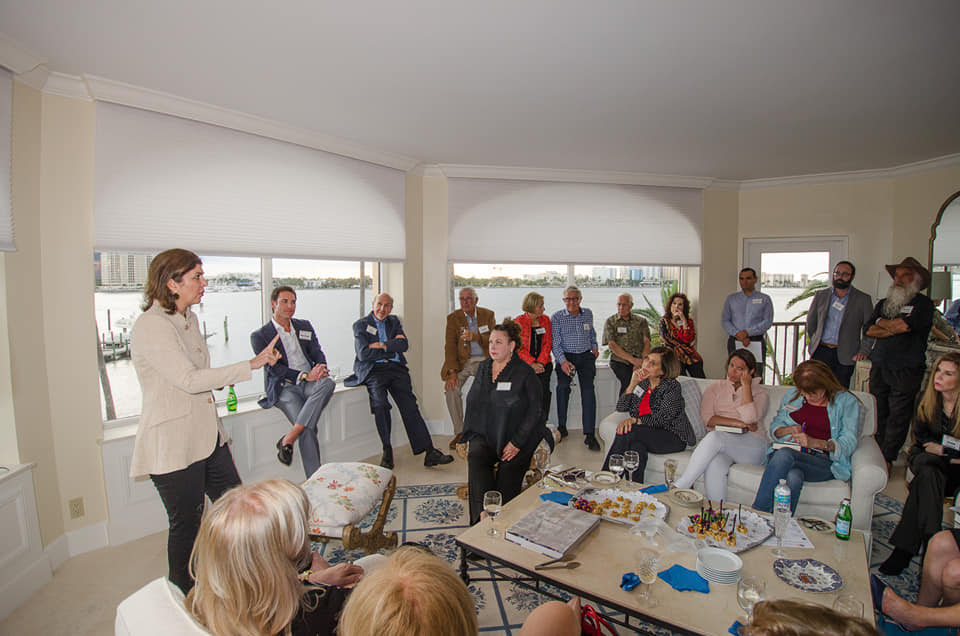
Audience listens attentively to key-note speaker Farah Pandith
Farah Pandith was introduced by Michael Greenwald, a Senior Fellow at the Center as well as a Fellow at the Harvard Kennedy School Belfer Center for International Affairs.
Ms. Pandith told the audience about her experience traveling the globe and interviewing Muslims throughout the Arab world, Asia and Europe. She highlighted what she described as the identity crisis of European Muslims as a result of their struggles to integrate into Western society. This crisis, she argued, makes them impressionable to Imams and other individuals who tell them they are not real Muslims because their modern lifestyle is incompatible with Islam. Pandith claims that the Muslim community is greatly diverse and that there is no single or “correct” way to be Muslim. Yet, there are preachers, mostly funded by Saudi Arabia, who try to homogenize the idea of what it means to be a Muslim—how a Muslim should pray, dress, eat and conduct their lives in general. Pandith views this as a deeply negative investment, as Saudi Arabia’s Wahhabist Islam is only one form of Islam and resents the rich-oil Gulf nation claiming to be the center of Islam.
Furthermore, Pandith faults Saudi Arabia for funneling millions of dollars to spread its radical fundamentalist interpretation of Islam and the Koran, which has fed extremist and terrorist groups. Despite Saudi pledges to stop such funding, it has continued spread as Saudi Arabia plays a double game. They are both the “arsonists and the firefighters” at the same time, as Pandith put it. She proposes further cooperation between the West and the Muslim communities, particularly on technology and innovation. Of course, Pandith’s book provides a wealth of detail and analysis on the situation in the Muslim world and proposes solutions to combat the spread of radicalism.
EVENT GALLERY PICTURES
in order of appearance from left to right
EVENTS
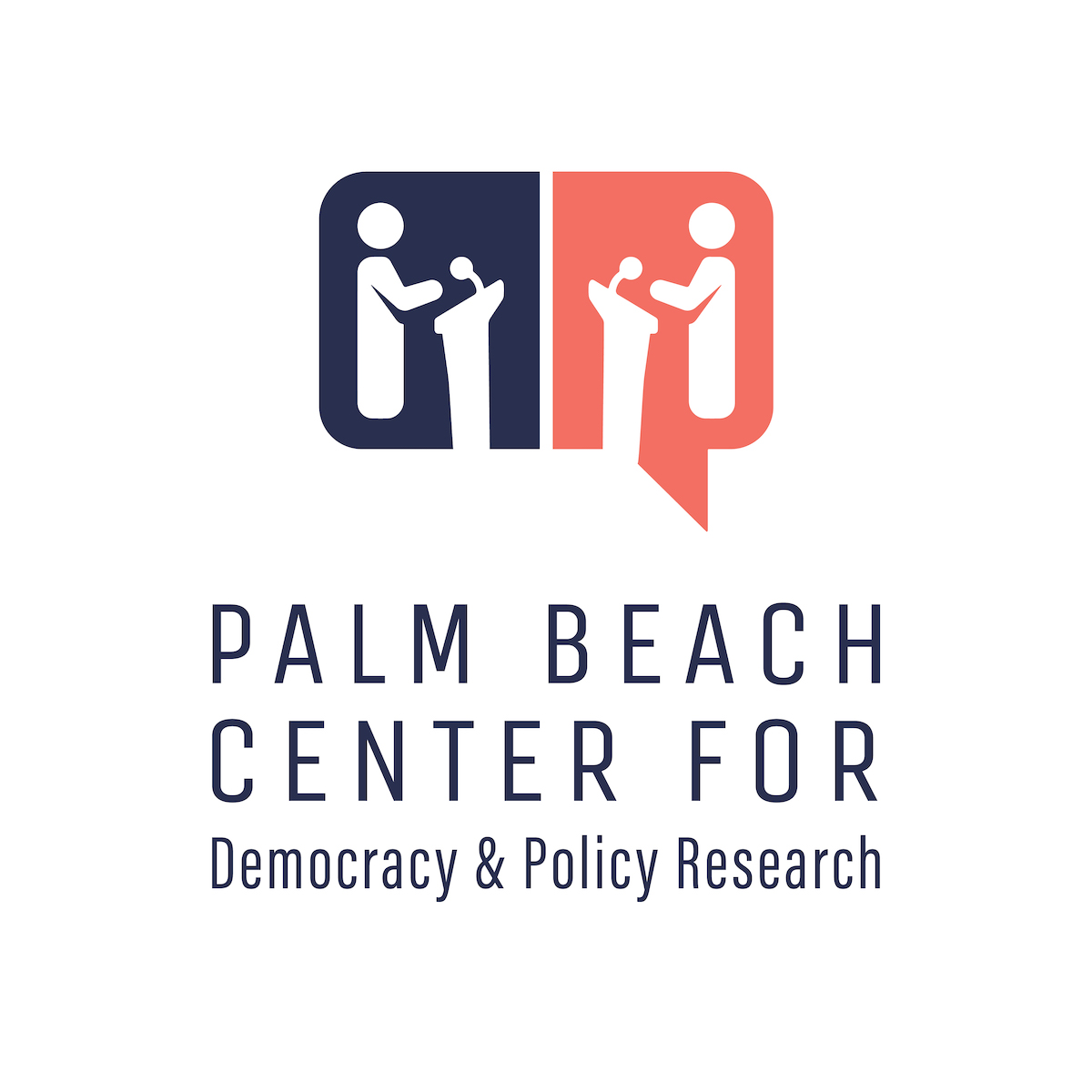
Related Articles
For Sake of Iranian People, Foreign Intervention Justified
As with many contemporary challenges, the case for foreign intervention in Iran has a clear precedent: NATO’s intervention in the former Yugoslavia against the regime of Slobodan Milošević.
Gaza’s Genocide Inversion: Setting the Record Straight
This video refutes the dire and growing accusation circulating globally—one that seeks to delegitimize Zionism, demonize Israel, and implicitly provoke hostility toward Jews both inside and outside the borders of the Jewish state–that Israel is committing genocide against Palestinians.
The Prospects for a Democratic Transition in Venezuela
The first phase focuses on oil. Owing to sanctions, much of Venezuela’s oil production is effectively frozen. Under this plan, American companies would help rehabilitate oil production and facilitate sales, while profits would be managed in a way intended to benefit the Venezuelan population rather than fuel corruption or sustain the regime.

The Center is a gathering of scholars, experts and community stakeholders, that engage in research and dialogue in an effort to create practical policy recommendations and solutions to current local, national, and international challenges.
EXPLORE THE CENTER
FOCUS AREAS
©2025 The Palm Beach Center for Democracy and Policy Research. All Rights Reserved

